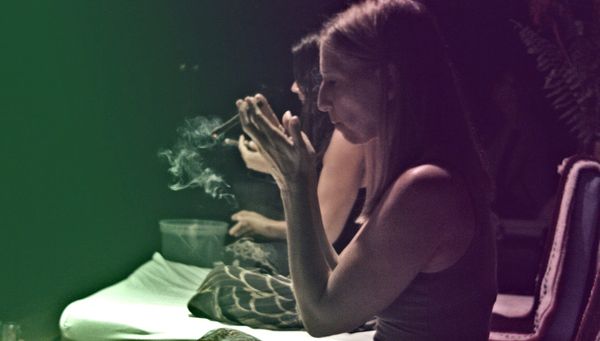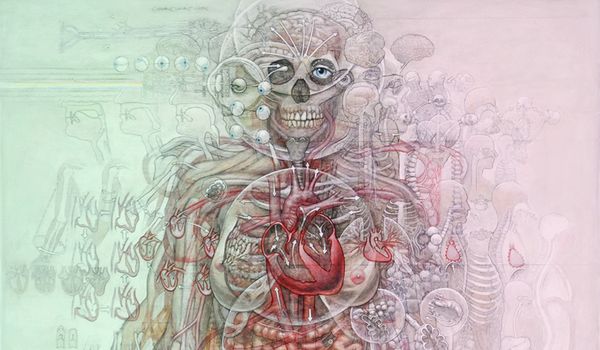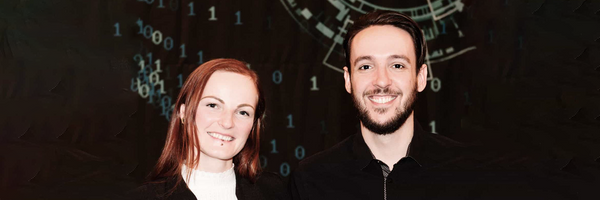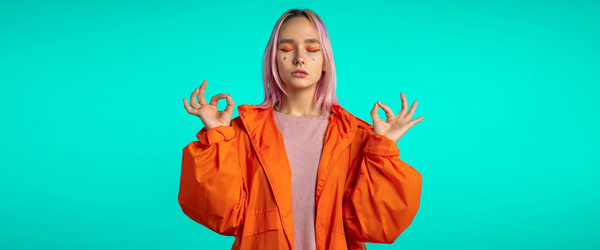Jon Waterlow • • 13 min read
How The Unexpected Reality of Pro Wrestling Turned Me Into A Buddhist
Consciousness & Meditation Philosophy Psychology & Happiness

Every wrestling fan has to put up with it. The derision, the mockery, the condescendingly half-assed attempts to recall childhood memories of Hulk Hogan and the Ultimate Warrior doing battle in the squared circle. And that’s the thing: for most people, these remain tales of childhood, and not something one ought to be watching after the age of 16. If you do, there’s every suspicion you must be socially or mentally deficient.
Well, I’m 31, I have a PhD from Oxford University, and I love wrestling. I’ll leave judgements about my social skills to others, but I do have something to say about why it’s absolutely fine to watch pro-wrestling. In fact, being a wrestling fan teaches and reveals to you a lot about “real life”, including some surprisingly deep insights into human nature and psychology.
I’d been playing with these ideas on and off for a while, but things came together last year when I spent a month on a meditation course at a Buddhist monastery in Nepal. During a particularly repetitive lesson, I surreptitiously devoured the autobiography of Daniel Bryan – former WWE Champion.
Incongruous? Not really.
In recent years I’ve been learning a lot about psychology from both East and West, and began to notice just how often pro-wrestling popped into my head with the perfect example for what I was reading.
You see, wrestling is human drama writ large; it’s pure storytelling – directly accessing our unconscious and giving us archetypal heroes and villains, placing us amidst cheering or howling crowds, and constantly renewing itself from moment to moment. You can learn a lot, in exaggerated form (which makes it easier to understand), about human nature, self-deception, peer pressure, and power-plays – the subject of my podcast series, Exploring the 48 Laws of Power.
So here are the principal things that loving pro-wrestling has taught me, both in the ring and on the meditation cushion.
Rejection Is Born Of Insecurity
Let’s start by shooting the elephant in the room.
Many – perhaps most – people laugh at you for being a wrestling fan. Why? In large part, they’re simply afraid to play.
Pro-wrestling is entertainment that’s openly ridiculous and doesn’t offer the shelter of “grown up”, socially-accepted labels like “drama”, or “sitcom” that legitimize other forms of entertainment.
It’s the same attitude of insecurity that led to “adult” covers being printed for the Harry Potter books; some people just couldn’t bear the kids’ ones because their sense being “grown up” or “serious” was so fragile yet precious to them… even though they still wanted to read and enjoy children’s books.
Which is absolutely fine!
It’s a peculiar and unhealthy urge to entirely “put away childish things” as we grow older, as if we can’t develop from the roots of our lives without trying to hack those roots off and replant ourselves in a shiny new pot labelled “Adult”.
So now it takes culturally-sanctioned events like Halloween or April Fools’ Day for most of us to loosen up and let the fun out.
And that’s a tragedy.
But this is how people think. When we’re insecure about something in ourselves, we project it outwards and censure that behaviour in anyone around us.
When we see in others those parts of ourselves which we’ve rejected, it reminds us of the things we’ve decided we don’t want to be, and that makes us defensive. Once we become more aware of this automatic thinking, as the monastery’s teachers repeated over and over again, we can become a lot more relaxed about the fact that other people do other things, and that we don’t have to take it as an implicit criticism of our own lifestyle. Why should it matter to you if someone else likes to watch pro-wrestling, after all?
Stories Are Fake, But They Have Power
Many people also feel uncomfortable around the idea of a fictionalized performance which has such blurred edges as wrestling. It’s pre-determined, yes, but the action in the ring isn’t scripted move-by-move, and elements of real life stories and animosities creep into storylines, matches, and social media.
Think of a co-worker you don’t like. In fact, think of one you hate. Now imagine that it’s your job to go out in front of an arena of people and pretend to beat the hell out of them. It’s only natural that a few shots land harder than necessary and that the “fake” fight turns just a little more “real”.
So, it’s scripted, but not entirely. It’s athletic, but not a sport. It’s exaggerated, even absurd, yet fans take it “seriously”.
Wrestlers play characters, but those characters are essentially exaggerated versions of themselves. And the story doesn’t stop when the show ends. To the outsider, this can easily seem like a mess. But that’s because they’re missing what pro-wrestling actually is.
Wrestling fan and screenwriter Max Landis said it best in his YouTube classic: “Wrestling Isn’t Wrestling”. It’s a TV show about wrestling, the same way House M.D. is a TV show about doctors cracking cases.
As a wrestling fan, it’s hard not to walk in on the naysayers while they’re watching a TV drama and scream, “It’s all fake, you know! Those people are actors – I’ve seen them in other shows!”
But we humans love stories. We love to put aside our disbelief and hear even the most fantastical stories play out for the sake of enjoying them and seeing versions of ourselves – our lives and emotions – reflected back to us in new and unexpected forms. And it’s not like learning Santa Claus isn’t real means that you can’t enjoy Christmas; that you can’t watch a cartoon show because the characters are “only” little drawings on the screen; or that we discard Aesop’s Fables and the Greek Myths because they’re “unrealistic”.
In stories, we learn about ourselves.
We buy in because we want to, and in doing so, we share that experience with others doing the same. And who are the others? Crowds at wrestling shows are not only remarkably diverse – in age, background, and able-bodiedness – they’re incredibly warm and nonjudgmental. They dress up, or they don’t. They mock fans of opposing superstars, but take the ripostes in good spirits. They play at taking it seriously, all in the spirit of fun. Because it is fun: there’s no violence or the kind of animosity so common to soccer matches, because we know it’s all a show, and we’re there to be entertained.
Art is alive. Stories are alive. It doesn’t matter what they are on the page; they only have meaning when they’re released into the world to be shared, retold, and reinterpreted. Does a story truly exist if there’s no one to hear or tell it? I don’t think so. And how would we know if it did?
Life Is Fake, Too
“You do know it’s fake, right?” Hmm, let me think… did I believe that The Undertaker really has magic powers and has risen from the dead multiple times? Did I think that wrestlers can have matches 4-5 days a week and still be alive, given how devastating a single fight can be in boxing or UFC? Hmm, yes, maybe I’m aware that it’s not a competitive, full-contact sporting event.
But that doesn’t make it “fake”.
It’s as fake as the rest of “real life”. We’re also all playing roles and characters. We buy into the reality of it from moment to moment, but as the Buddhists, the Toltecs, and many other ancient philosophies emphasize time and again, it’s all a matter of buying into a shared dream, rather than these narratives having any measurable, objective reality.
The rules that guide our lives are conventions that disappear if you nudge them. That’s why, when you visit other cultures, everything can seem so different, from fashion to social relations, to food, to laws and the codes of conduct. Suddenly nothing seems quite so “objective” or “natural” anymore. Instead, it seems like when we’re at home, we’re living inside a shared dream which everyone’s treating as though it were self-evidently “true”.
Take your identity, your sense of self. If you used the most advanced scientific technology to analyse every atom and energetic resonance of your body, you’d find no trace of your “identity” or your “self”. Nor can you find it with your mind if you try.
As the Buddhists delight in pointing out, the sense of having an “I”, an ego, is a story that we tell ourselves to give us a sense of importance, as though the world is happening purely for us, rather than us being just a tiny part of the world system. It’s an idea. A story. It helps give meaning to our existence, but it’s as fake as a tombstone piledriver. Like the tombstone, it can seem powerful and even devastating – but only if you buy into the reality of it. If you don’t, it’s just a carefully performed ritual in which nothing is really on the line.
What wrestling makes plain about real life is that there’s always more than one level or perspective from which to look at things. We can look from within the shared fiction, or we can look at it from a more detached, critical standpoint. In life, we can buy into powerful emotions, for instance, and can be overwhelmed by them (“I’m so angry, I’m going crazy!”), or, with the help of meditation, we can take a step back and observe the drama from a place of calm (“I’m experiencing anger; I wonder what’s causing it and how best to understand it?”).
If you start taking everything too seriously, if you feel like your identity or beliefs are so damn real that anything which seems to challenge or complicate them is a threat, you become terribly brittle. It’s like The Undertaker forgetting that the tombstone is a performance, and actually drilling his opponent’s head into the canvas. That would be catastrophically dangerous.
Arguably, so is taking yourself too seriously: you’re setting yourself up to shatter against the rest of the world. Flexibility and the ability to flow are crucial.
There’s More To Life Than What Happens “On Stage”
In life, there’s what the Anthropologist James C. Scott called the “public transcript”: the stuff that’s meant to happen, the official version of events that we write up in the newspapers and minutes of meetings, or what we tell our parents happened on that night out. But there’s a “private transcript”, too – the real human relationships and practices that are essential for the public performance to function.
Think of it like a live music concert. When a jazz band performs, stage whispers, gestures, and other communication are all allowed between the musicians. They’re part of the action on stage, and yet the musicians as well as the audience “unhear” them. The “performance” is what we focus on – the music. But this other stuff is going on too, and it’s essential to making that music.
Or, even better, take the kuroko – the stagehands in traditional Japanese theater who dress all in black and move scenery and props, or who hold up puppets which represent animals or spirits. By convention, the audience “unsees” the kuroko, but they’re essential to the performance, and they’re standing right there. We select what we see for the sake of the story, for the reality we want to engage with. The wrestling fan similarly unsees or unhears anything that breaks the fiction in the ring; they choose which reality they want to focus on, even if they’re aware of both. You could watch the ventriloquist’s lips move, but it’s more fun to watch the dummy and enjoy the show.
Your Plans Can And Will Go Awry
Wrestling is scripted, so everything is pre-determined, right? Not so much…
Writers might come up with stories they want to tell; characters may be designed and conceived to get a particular reaction. And yet, when the music hits and the crowd lays eyes on you, all those plans are rapidly thrown out the window. When the rubber meets the road, or when the plan meets the people, nothing’s for certain.
Even one of the most popular and beloved wrestlers in history – The Rock – didn’t get an easy ride. His first incarnation, Rocky Maivia, was meant to be a happy-go-lucky fan favourite, but his bland grinning and “I’m just happy to be here!” vibe quickly turned the audience sour. Only morphing into a bad guy gave him space to show just how damn cool and creative he could be.
Whatever our plans are, when we head out into the world, we have to be flexible and be able to flow as we go. As the Buddhist monk Thich Nhat Hanh puts it, “Letting go gives us freedom, and freedom is the only condition for happiness.”
This is especially true when we create something new: once we put it out there, we have to let go and see how the audience responds. We can do our best to provoke the reaction we want, but we cannot and should not hope to control it. The more you force it, cling to it, or demand a particular reaction, the less likely it is you’ll succeed.
The Story Just Keeps On Going
Unlike conventional TV series or competitive sports, wrestling doesn’t have seasons. Like comic books, storylines might wrap up, but there’s always another episode to fill next week. And this storytelling structure reflects something crucial about real life.
As Orson Welles put it, “If you want a happy ending, that depends, of course, on where you stop your story”. Storybooks and Hollywood blockbusters might feed us on “Happily Ever Afters”, but we know that’s not how life works. We don’t hit a moment of happiness, hear the opening bars of an uplifting song, and then fade to blissful blackness as the credits roll. We get up the next day, and maybe it’s a bit shit. Things just keep on going, and soon enough much of the day’s events are forgotten.
The world doesn’t stop; everything changes; nothing lasts forever. Impermanence is one of the Three Marks of Existence in Buddhist philosophy; it is a fundamental condition of being. Trying to pretend otherwise gets us nowhere. But the changeability or impermanence of it all doesn’t have to get us down…
Friends Become Enemies Become Friends
A mainstay of pro-wrestling is The Turn, in which the bad guys (the Heels) become good guys (Babyfaces/Faces), or vice versa.
But there’s more to this than casual schizophrenia. Even if our friendships hopefully don’t blossom or implode as often as they do in wrestling, they’re far less fixed than we like to believe.
At the monastery, we were challenged to meditate on this for hours to develop our capacity for maitri – “compassion”, or “loving kindness”.
Think about it. How we perceive other people ultimately comes down to the way they treat us, and that can always change. What if your best friend suddenly started acting like a total dick? How long would it take before they were no longer your best friend? And what if your nemesis turned over a new leaf, or you unexpectedly found a common interest that brought you together in a way that seemed unimaginable? How long would it be before they slipped into the category of “neutral” and then into “friend”?
How you feel about someone else is not due to some concrete quality that exists within them, but we still prefer to label them “good” or “bad”, depending on how we feel, ascribing some inherent characteristic to them when really it all comes down to how we feel in response. We prefer to keep people in neatly-labelled boxes and feel uneasy if they begin to clamber their way out – even when they make positive changes. It’s this tendency which leads to accusations of “selling out”.
We feel comfortable with the already-known; change can be scary. But that’s precisely why we like surprises in stories – change is also exciting.
There’s a bigger lesson in this, too. We tend to fixate on and become trapped by the past, to feel that because something happened, or we made a particular choice, that we’re stuck on a certain trajectory. But this isn’t true: we are free to choose how we are from moment to moment; just because you acted nastily to someone yesterday doesn’t mean you have to again today.
We change, they change, the world changes. The idea that things are more stable than that is a convenient fiction we tell ourselves because otherwise we feel groundless and uncertain. Yet that groundlessness can be profoundly liberating: when nothing is fixed, anything is possible.
On which note:
We Are All Multiple Different Characters
Just as wrestlers switch it up and change their characters over time, we each show different sides of our personality in different settings, and each one is no more real or false than the last.
In Buddhist thinking, we simply don’t have a solid “self” (the concept of anātman). We can’t grasp a “self” any more than we can “walk off with a river in a bucket” (Alan Watts).
The notion of being “completely yourself” with a partner or your closest friends is bullshit. We’re a composite of different and even contradictory pieces: who you are with one friend is not exactly the same as you are with another. Who you are at work isn’t the same as who you are when enjoying a hobby. This isn’t “insincerity” of some kind, as insecure partners might claim. This is the rich diversity of the human condition.
Still, not all parts of that condition are positive…
SMARKS
Some people take wrestling too seriously. Putting aside the colossal irony that I’m writing about WWE through the lens of Buddhist philosophy, let’s consider the Smark, or “Smart Mark”. A “Mark”, in wrestling-talk, is a fan who (temporarily) suspends disbelief and really buys into the drama or the character they’re watching. But a “Smart Mark” is a fan who expends great energy being dissatisfied with just about everything on the show, criticising each scripting decision as though they were in the writers’ room themselves, ruining everyone’s fun, including their own.
The Smark is a classic personality type: someone who tries to feel some sense of superiority or control over the world by being discouraging at every opportunity, mistaking dreary cynicism for penetrating insight. Their every sentence will begin with the word “Actually”, before explaining in excruciating detail why they know better than you. They truly put the “anal” in “banal”.
This world-weary bitching is something we encounter in our everyday lives. These are the people who refuse to get excited about new ideas and are determined to suck the fun out of everything spontaneous.They’re also the ones who will hold you back from taking a chance or going for your win (whatever it may be).
The lesson of the Smark is simple: Do not let the urge to be a wise-ass hold you back from actually enjoying life and sharing the fun with the people around you.
Let Go And Enjoy The Ride
And that, ultimately, is what “Buddhist” pro-wrestling has taught me about “real life”. As Bill Hicks so memorably put it, “The world is like a ride in an amusement park, and when you choose to go on it you think it’s real because that’s how powerful our minds are.” But it’s still just a ride – and our minds are more than capable of holding two overlapping perspectives at the same time so we can both be in the moment, yet not take it all so seriously that we no longer enjoy it.
We need to remember not to take things – especially ourselves – too seriously, or we lose all the joy and spontaneity of life. If you believe in your own story too hard, you’re going to get hurt: when we forget it’s all a game, we stray into Smark territory, or, worse, into the withering sarcasm of those who can’t bear the idea that other people like different things (while secretly clutching their adult-covered Harry Potter books).
Just like in the ring, if you tighten up and become stiff, you’re going to get hurt; you’re going to put on a shit show; and you’re going to be unlikable to everyone around you.
Sure, have an ego, be a star, aim for the stratosphere. But you still have to work with the other people in the ring and in the audience if you’re going to get anywhere personally, professionally, or creatively.
Instead, let’s just remember we’re playing at taking it seriously. And then we can enjoy the show.










